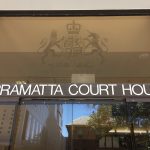Illegal Phone Tapping by NSW Police: Is the Force Corrupt from the Core?

How would you feel if you found out that your colleagues had tapped your phone and other communications outlets in order to jeopardise your career?
You might feel betrayed, angry or upset.
You might even lodge a complaint with your superiors.
But what if your complaints were then dismissed by investigative authorities, who instead helped your colleagues to cover up their wrongdoing?
These are just some of the allegations made by senior members of the NSW Police Force at an inquiry into a controversial phone tapping scandal, which targeted high-ranking officers, journalists and their extended families.
Operations Mascot and Florida were launched by the NSW Police Force in the early 2000s and sought to target alleged corruption within the force.
Over 100 police officers and journalists were subject to intense surveillance and monitoring as a result of the operations, with little justification or basis.
One of the officers targeted was Deputy Police Commissioner Nick Kaldas, who gave evidence at the inquiry that he and his extended family had been monitored for several years by members of the police force and the Specialist Corporate Intelligence Agency (SCIA).
Kaldas alleges that he was targeted due to his involvement in internal disputes with senior officers within the SCIA. He says that various communication outlets were tapped as part of a campaign to gather personal information which could be used to damage his reputation and career.
Kaldas says that as a result of the campaign, he missed out on numerous promotions and opportunities for career advancement.
On top of this, Kaldas has given evidence about the destructive impact of the investigations on other members of the police force, culminating in the tragic suicide of one senior police officer.
How did police get the warrants?
In order to record conversations, police are generally required to obtain a warrant from a judge or magistrate.
This requires police to establish ‘reasonable grounds’ that an offence has been committed, or is about to be committed, or is likely to be committed.
Police seeking to obtain a warrant must also show that there is an investigation underway or pending into the alleged offending, and that surveillance is necessary to assist in the investigation.
However, in this case, it is alleged that police obtained these warrants illegally by presenting false evidence in order to persuade judges and magistrates to issue warrants.
The inquiry has heard evidence that, while hundreds of people were subjected to listening device warrants, there was often no credible information presented to to establish a basis for the warrants. Rather, the information was often exaggerated or even fabricated.
The inquiry has also heard evidence that despite the extent of the surveillance, no allegations were ever put to those persons targeted by the investigation.
Whistleblowers targeted by investigations
In yet another series of damning allegations, evidence has been given that members of the police force who spoke out about the unjustified surveillance had their complaints ignored or dismissed by key investigative bodies.
Deputy Commissioner Kaldas notes that he made several complaints to the Police Association, Police Commissioner, Ombudsman and the Police Integrity Commissioner about the extent of the surveillance that he was subjected to.
Yet despite these complaints, little was done to address Kaldas’ concerns.
Indeed, it is alleged that the Police Integrity Commission (PIC) and NSW Crime Commission acted to conceal incriminating documents for up to a decade, making it difficult for police complaints to be fully investigated.
The PIC is tasked with the job of detecting, investigating and preventing serious police complaints and misconduct, while the Crime Commission works alongside the NSW Police Force to investigate serious and organised crime.
Instead of properly investigating the complaints, it is alleged that those who voiced their concerns became the subject of campaigns to destroy their reputation, whilst the agencies responsible for the investigations actively covered up the wrongdoing.
NSW Ombudsman Bruce Barbour was also implicated in the alleged cover-up, with Deputy Commissioner Kaldas alleging that he failed to fully consider a number of factors in carrying out the inquiry.
The Ombudsman is supposed to act as an independent watchdog that investigates complaints against government agencies and ensures that they properly exercise their functions.
However, Barbour’s handling of the inquiry has been heavily criticised.
Barbour initially opposed the inquiry into the phone tapping scandal, arguing that it could ‘frustrate and impede’ his own investigations.
He has also said that secrecy was essential to ‘maintaining the integrity of the investigation and protecting the welfare and reputation of involved persons, particularly those who are the subject of untested allegations.’
But this view has been overwhelmingly opposed by government ministers, who voted to establish the inquiry despite Mr Barbour’s comments.
Shooters Party MP Robert Borsak, who is chairing the inquiry, stated that the cover-ups needed to be fully investigated in a timely manner.
These statements have been backed by Greens MP David Shoebridge, who denied allegations that the inquiry would cause damage to the reputation of senior police; instead arguing that ‘the public and the people the subject of these potentially grossly illegal wire taps deserve some public hearing.’






